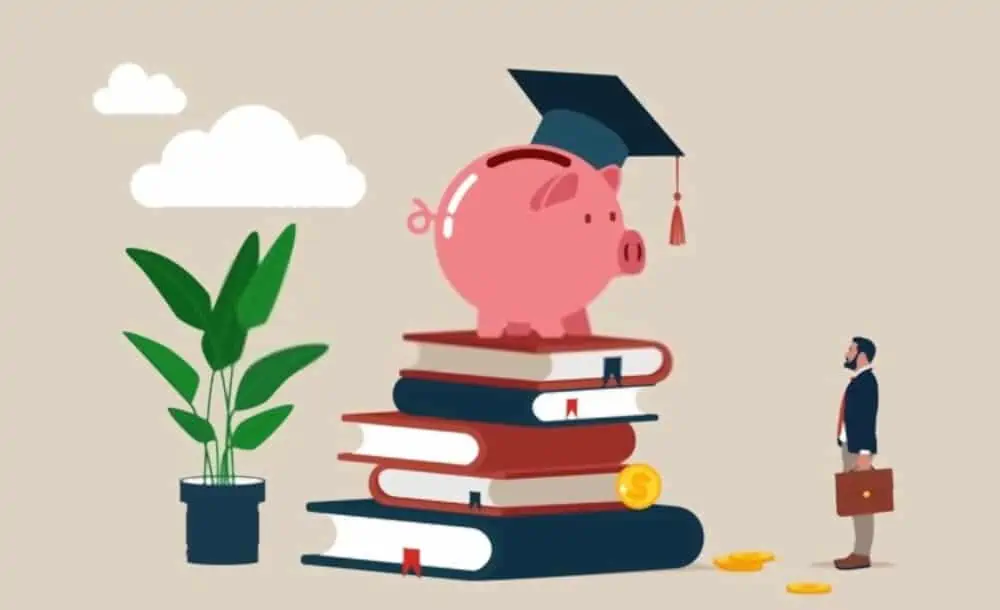Earning a college degree opens you up to many different opportunities. You get a chance to have a quality education, job opportunities improved earning potential, and a secure future.
Most times, going to college is associated with high, expensive tuition fees that almost always leave many students in debt. For example, recent data puts student loans over the $1.5 trillion mark, about 7% of America’s GDP.
The figure above and other statistics have seen people come up with multiple suggestions, including making college education free. Many reasons for this proposal include rising student debt and more opportunities for the financially disadvantaged to access quality education. Pause momentarily and imagine the Ivy League colleges and other world-class institutions being free. Would that make any sense in today’s world?
While you take little time to think about your response, there are many reasons why college shouldn’t be free. Some of them are explained in this article.
Does Free College Exist?
Yes, free colleges exist in different parts of the United States. However, you should ask whether such schools are genuinely free. Most times, ‘free’ colleges have some conditions, either in fine print or under clearly stated conditions.
For example, you may hail from specific states or regions or come from a low-income family/background to qualify for such a program. Other free colleges require you to work on the side or take up some role after obtaining your degree.
Further, many tuition-free colleges might still charge for room and board or other basic amenities. Some schools offer free tuition in the United States, such as Alice Lloyd College in Kentucky. However, you must commit to working at least 10 hours a week.
Another example is Barclay College, Kansas, a private Christian college you can attend tuition-free but must live on campus to qualify for the full scholarship. You must also pay for your room and technology.
Five Reasons why College Should Not be Free
Below are some of the reasons why colleges and universities should not be made free.
1. The Burden of Debt Increases and Moves to Taxpayers

It costs a lot to go to college and eventually earn a degree. That’s why many students get enmeshed in large student loan debts that take years to pay off after graduation. If colleges are free without student tuition, this puts too much strain on the American taxpayer.
Further, some Democratic senators proposed that as much as $50,000 be waived from every outstanding college loan in the United States. While that’s a thoughtful and generous policy proposal, it will likely cost the American taxpayer over $1.5 trillion annually!
The policy will send debt beyond normal limits and not solve the issue. Also, proposing more money to cater to college tuition will only create a false down. In the short term, the policy will hit a snag, bankrupt hard-working taxpayers, and return to the status quo ante.
2. Help Already Exists

One of the bases for agitating for free colleges is that tuition fees go far beyond living costs. But the fact is that help already exists. For example, many federal programs help students from lower-income backgrounds achieve their higher education dreams. Community colleges also offer degree studies for a fraction of the cost compared to certain institutions, including higher ones.
Based on merit, many students have wonderful scholarship opportunities, provided they meet specific criteria. Some of them include academic excellence, sporting talents, and innovative capabilities. With these awards, there is no need to scrap college tuition fees.
3. Students get Faced with Limited Choices

Perhaps you have a school or two you want to attend for a diploma or degree program. A free college mostly means that choice is taken out of your hand. You won’t have the chance to attend your choice of college.
Moreover, many still believe that a reward for working harder and earning more is getting better college options for your children.
That belief means that making colleges free would eliminate the incentive to work as hard as possible to get the best rewards – good, preferred colleges. Getting such a college is a win for the student and their parents or guardians actively working towards funding their family’s futures.
4. More Government Control

In most cases, the advocates of free colleges also believe that government should pick up the bills. That most certainly means more federal taxes. Also, it gives the government greater control over the services colleges should ordinarily provide.
Besides, the blanket control government is exercising over education now isn’t something to write home about. One wonders what happens when total control of colleges is placed in their care.
Whoever takes complete control of free colleges will become more rigid, unresponsive, and bureaucratic, thanks to overly centralized powers. Students and their families paying their tuition should remain the standard. The benefits include classes beneficial to individual strengths and the joy of receiving the value you paid for.
5. Not Everybody Wants to Attend College

Every day, it’s becoming more evident that education isn’t the only way to success. But people still see value in pursuing a course of study and earning a degree.
Others find fulfillment in their talent, practical work environments, and passions. Since not all high school students want to attend college, it doesn’t make sense to make it free.
Education should be free of pressure rather than a firm hand to follow the next logical step after high school. Many aspiring college undergrads do not need to feel compelled to attend college. Also, they will find a way to pay their tuition because they genuinely want to do it.
Final Thoughts on Free Higher Education
Whenever such a topic pops up, you can always be sure of a divide, thanks to valiant arguments. However, the points above are pretty straightforward and speak directly to the issue. Free colleges are never truly free. Students must give something in return to receive value.
That said, it’s not uncommon for a group of people to earn scholarships that cover every part of their college experience. Scholarships and non-refundable grants are two examples.
Now that you know college should not be free, deciding whether you want to go is easier. Also, paying for college gives you greater control over what you want to do, when you want to do it, and where you want to do it.
Resource:
- Hanson, Melanie. “Student Loan Debt Statistics” EducationData.org, July 17, 2023,
https://educationdata.org/student-loan-debt-statistics

Sam is a brilliant young Nigerian biochemistry student and an aspiring entrepreneur. Despite facing many challenges, he has never lost his passion for learning and drive to make a difference in the world. Read more about him here.